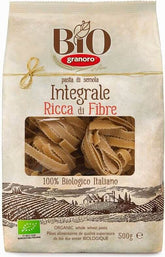Muscle soreness, or how to prevent its occurrence and how to fight it effectively?
- What are popular sourdoughs and how are they made?
- How to prevent the formation of sourdough in advance?
- First, proper hydration of the body
- Second, a high supply of anti-inflammatory ingredients
- Third, a high protein intake in the daily diet
- BCAA and Leucine - why are they so important in the process of muscle recovery?
- Other ways to prevent pain
- What if there is already pain?
- summary
Who among us has never come into contact with soreness and felt the affliction on our own skin? Although this phenomenon is completely normal, it is not very pleasant. That's why we decided to delve a little deeper into the topic and see if an effective defense against sore muscles is possible. Due to the fact that this disease is very complex and many factors act on it, we will discuss only the main ones. Additionally, it's worth noting that pain isn't just the domain of people who regularly go to the gym or run marathons. They can affect any of us and it is worth knowing their causes and methods to counteract them.
What are popular sourdoughs and how are they made?
Muscle soreness, or rather delayed muscle soreness, is also known as DOMS (Delayed Onset Muscle Soreness During Sport). It is nothing more than muscle pain of varying intensity that occurs after intense physical exertion. Usually this phenomenon becomes noticeable 24-48 hours after training or work and usually lasts up to 5-7 days. Interestingly, until recently, the general belief was that muscle soreness is caused by an excessive buildup of lactic acid in the muscles. However, we now know that this is not true, because delayed muscle soreness is nothing more than mechanical muscle damage. To be more precise, it is about micro-damage to the muscles and the surrounding connective tissue. Most often they appear after intensive strength training, especially without proper warm-up, or after a long break in training, as well as after ordinary daily physical activity. With such micro damage, inflammation can also develop, which is also responsible for an increase in pain in the muscle tissue. However, as far as the lactic acid produced in the muscles is concerned, this is practically eliminated up to an hour after training, so it has nothing to do with muscle soreness. However, it is worth noting that the accumulation of large amounts in the muscles during their work can cause discomfort during the exercises themselves. After all, it is one of the products resulting from the burning of glucose, so necessary for the proper functioning of all muscles. The basic symptoms of sore muscles include pain, stiffness, and muscle weakness, as well as swelling, tenderness, or restriction of range of motion of a particular muscle.
How to prevent the formation of sourdough in advance?
As with almost all diseases, it is better to prevent acidosis than to treat it later. Interestingly, this phenomenon strongly correlates with the nutritional status of our body. Therefore, one of the basic ways to counteract them is simply to eat healthily. To do this, however, it is important to understand which food components can reduce the risk of delayed muscle soreness and which can even increase it.
First, proper hydration of the body
Proper hydration is extremely important not only for physically active people, but for all of us. A high intake of water in the diet is an indicator of the correct electrolyte balance in the body and affects the proper functioning of muscles and their regeneration. In the case of overtraining and the resulting delayed muscle soreness, a high intake of fluids from the body can significantly reduce its symptoms. In addition, in the event of dehydration, muscle microtears can cover much larger areas of muscle tissue, making the pain much more painful. Remember that just drinking large amounts of fluids before a workout is not enough. After all, the hydration of the system takes time and we should keep it at a high level regardless of the planned training sessions.
Second, a high supply of anti-inflammatory ingredients
Since muscle soreness is naturally correlated with inflammatory reactions in muscle tissue, it pays to include anti-inflammatory substances in your diet. Omega-3 fatty acids, caffeine, taurine and some polyphenolic compounds are among the best-studied substances of this type, which also have strong anti-inflammatory effects. It has been shown that taking these substances both before and after training can significantly reduce the intensity of muscle soreness. In addition, these compounds also have antioxidant properties and thus affect our health by fighting oxygen free radicals. In order to supply our body with taurine and omega-3 acids, we should use meat products, especially oily sea fish such as salmon, tuna or mackerel. On the other hand, large amounts of polyphenols are found in cherry, blueberry and pomegranate juice. Caffeine occurs naturally in coffee, tea and cocoa beans.
Third, a high protein intake in the daily diet
Since proteins, actually amino acids, are the basic building blocks of our body, we should ensure that we get enough of them in our diet. In addition, proteins play an important role in the regeneration of damaged tissues, including muscle tissue. This not only allows for exercise-induced muscle growth, but also ensures proper recovery. After all, the resulting micro damage must be repaired quickly, which manifests itself in pain, muscle weakness or inflammation. A high intake of protein in the diet minimizes the risk of muscle soreness, and when it does, the condition lasts much shorter due to efficient processes to rebuild damaged muscle fibers. Interestingly, proteins derived from milk work best in this role. They show the greatest ability to regenerate muscle tissue and, due to their high bioavailability, their effects come on relatively quickly. It's also worth noting that drinking 500 milliliters of milk right after a workout can have a big impact on reducing muscle soreness, which manifests itself in the form of pain symptoms.
BCAA and Leucine - why are they so important in the process of muscle recovery?
BCAAs are branched chain amino acids and we can distinguish leucine, isoleucine and valine. For example, they are responsible for the rapid regeneration of muscle tissue, as well as its proper work and growth. It is worth noting that milk proteins are a good source of them, but they are also found in products of animal origin (beef, poultry, eggs, fish) and of plant origin (soybeans, beans, peas, lentils, nuts and seeds). Such amino acids can also be provided in the form of dietary supplements and protein supplements of all kinds. It is worth noting, however, that leucine has the greatest impact on muscle recovery and therefore the potential onset of muscle soreness. It is estimated that it is not so much the consumption during the day that is of great importance, but the content of this amino acid in the individual meals. For this, it is worth consuming 1.5 to 2.7 grams of leucine per meal. This amount has been shown to be the most effective for building and regenerating our muscle tissue. Most of this amino acid is found in dairy products (cheese, yogurt, cottage cheese), chicken eggs, chicken, fish, pork and some products of plant origin (millet, bread, white beans, peas, beetroot).
Other ways to prevent pain
The most common cause of sore muscles is still some form of overtraining of the body. To avoid them, we should pay a lot of attention to warming up before training. The preparation of the muscles for the upcoming physical exertion and the warming up have a significant influence on the subsequent regeneration. We should also remember not to end the workout too quickly and abruptly. Because the faster our body comes to rest, the slower the lactic acid formed in the muscles is broken down, but the repair processes also slow down. Therefore, after completing the right training, we should perform gentle aerobic exercises aimed at gradually relaxing the muscles. The same applies to the intensity of the training itself. Start the adventure with almost any physical activity, it is worth slowly accustoming the body to the effort and slowly increasing the intensity of the training. Otherwise we almost always have to struggle with sore muscles.
What if there is already pain?
One of the worst things we can do to prevent delayed muscle soreness is to not stop strenuous physical activity. Yes, recovery training is a good idea, but let's not forget that it shouldn't be too intense. Otherwise, not only will the muscles not regenerate, but we will also deepen the microdamage that occurs in them and increase the intensity of inflammation. A good way to get rid of pain is a sauna or a bath in warm water, but it should be done a few hours after training, otherwise the effect will be completely the opposite. We can also undergo all kinds of massages and massage painful areas ourselves. We also recommend using the swimming pool, as gentle exercise combined with cold water can significantly minimize the symptoms of overtraining and accelerate muscle regeneration. Let's not forget a sufficiently long sleep, because then the regeneration process is most efficient.
summary
Muscle soreness is certainly not pleasant, but it is an inseparable part of intense physical activity. Fortunately, there are many ways to protect yourself against it. One of them is proper nutrition and ensuring good body hydration. We can also design our training to reduce the risk of their occurrence to an absolute minimum. However, sometimes this is not enough and sooner or later we become victims of delayed muscle soreness. In this case we can also apply a series of activities that will certainly significantly reduce pain and shorten the duration of muscle soreness, allowing us to resume our daily physical activity much sooner.

















Leave a comment
Please note that comments must be approved before publication.